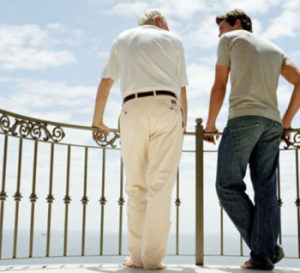If there is anything to be learned from the emergencies that can happen at the drop of a dime, preparedness is essential for survival. Schools and office buildings have drills to prepare for a fire or an active shooter on the premises. These drills are often planned with emergency workers on hand to give reports about what gets done right and what is incorrectly handled. However, when it comes to our homes or personal lives, although not all emergencies happen at home, many do not take the time to prepare for emergencies. Continue reading to learn why having emergency plans is essential and some ways to make sure your family is ready for an emergency. As we’ve all seen in movies when there is a fire in a home and the residents are all separated. There is an excellent chance that they are looking for a member or two of the household and are perplexed about whether they got out of the home safely. If there were plans in place, the confusion that we’ve seen could have been avoided because there would be a meeting place. Some tips to ensure that your family is ready for an emergency are:
Stay Informed.
If you live in a low water area like Louisiana, there is always a chance of flooding when it rains. Similarly, if you live on the northern side of California, where it is dry, you know that wildfires cause a lot of evacuations. Stay informed of what is going on in your area so that you aren’t caught off guard. That means that while national news is excellent, local news is vital for keeping up with current events in your area, like the weather forecasts. Staying informed also means knowing what shelters, community centers, churches, or other resources are available in your area when there are emergencies. You don’t want your family scrambling around at the last minute when a hurricane or flood happens. If you know where you can go, you are better prepared for an emergency.
Develop Your Plan.
You want your family involved as you start developing your emergency safety plan. That way, everybody is part of whatever decisions you make. Holding a family meeting to discuss a safety plan will teach your children the seriousness of planning for an emergency. Some things that you want to keep in mind to do as you intend is:
- Teach your kids the emergency numbers – put up a poster if necessary.
- Teach your kids to call for help – knowing your full names, addresses, and phone numbers.
- Teach them who to call in addition to parents.
- Decide where your family will meet near home.
- Decide how you will check in with each other.
- Know the disaster plan of your children’s daycare or school.
Take some courses on emergency preparedness or other training to prepare you for an emergency such as dry fire training, or CPR certification.
You don’t want to scare your children, but you want to make sure that they know what to do in an emergency. Therefore, it is wise to drill them on the information and make sure that they know it.
Prepare a Disaster Kit
You may need several disaster kits for your family, depending on the type of emergency you experience. For instance, if you are preparing equipment based on a possible house fire, you want to duplicate essential family papers such as birth certificates, marriage licenses, car titles, property deeds, passports, banking documents, etc. You also want copies of family pictures that cannot be replaced, especially deceased family members. If you are preparing for no electricity after a flood, you’ll want flashlights, canned foods, bottled water, a handheld can opener, and enough food for your family to survive at least three days without power. Other things that you may need in case of an emergency are: Cash, credit cards, identification of your entire family, a map of the area, or a telephone charger.
Get Involved in Helping Others
If there is an emergency in your area and you have secured your family, becoming a resource that others can depend on is essential to getting your lives back to routine faster. You can also volunteer in transporting people to safety or cleanup efforts after a disaster.
Conclusion
As you have read, disasters come unexpectedly, but there are ways to prepare for an emergency. Talking and planning are key to making sure your family is prepared for an emergency.



